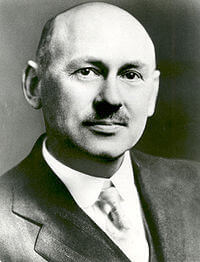
Rockets play a bigger part in many people’s lives than you may think and one of the foremost pioneers in the rocket propulsion field is Robert Goddard. He made many significant contributions to the field and is honored the world over for his scientific genius.
1. Father of Rocket Propulsion
Goddard is called the father of rocket propulsion. He had a vision for the exploration of space along with several other scientists and made a career of doing the things that were needed to make that possibility a reality. He was a genius in the physics field and was an inventor.
2. First Successful Liquid Fueled Rocket
Goddard constructed the first successfully tested rocket was in 1926 using liquid fuel. The rocket was launched in March of that year and was certainly a very significant feat in the progression towards having the real possibility of going into space. Many people have said that this event was just as important as the first airplane flight in Kitty Hawk by the Wright brothers. But this event was only the beginning of his long and significant career.
3. U.S. Navy
The government wasn’t always impressed by Goddard’s rockets so it was difficult at times for him to secure financing and time to work on the things that were the most important to him. Though the government didn’t always give Goddard the attention and funding he wanted, he worked for the U.S. Navy in both World Wars.
4. Patents for His Inventions
Goddard was awarded two patents for his inventions in 1914. One of the patents was for a rocket that was liquid fuel-propelled and the other one was for a two or three stage rocket that used solid fuel. Goddard conducted periodic propulsion studies testing various materials including gun powder, often at his own expense.
5. Smithsonian Institute
He frequently requested funding from the Smithsonian Institute for his studies and projects. They gave him more funding than any other government entity. He was quite well connected with several people at the Institute which may have helped his quest for funding easier compared with other agencies.
6. Writing Treatises
He also wrote several treatises detailing his study methods. He was interested in the weather’s affect on the possibility of launching rockets higher than weather balloons could reach. He also included some of his mathematical theories about rocket propulsion in these papers.
7. Mission to the Moon
He wrote papers on the feasibility of actually conducting a mission to the moon. He even suggested having a rocket explode with a load of flash powder when it reached the moon to indicate to everyone on earth that it had arrived. The media started to pick at his ideas and dispute whether it was really possible for anyone to ever reach the moon on a rocket. All the negative publicity that he got probably led to the negative feelings he had about the press for the rest of his life.
8. Creative Science and Practical Engineering
Many people say that Goddard was one of the first scientists to realize how the possibility of missiles and rockets could influence the future of the world and worked directly in bringing them to fruition. He had skill in creative science and practical engineering which made him a very bright mind in the field.
9. Beginning of the Space Age
The discoveries and many efforts of Goddard went unrecognized in the United States until the beginning of what we call the space age. Robert Goddard was given very significant honors and gained wide appeal when the space age programs created. In 1959, Congress issued a gold medal of honor to Professor Goddard for his research and developments.
10. Goddard Space Flight Center
NASA created a major space science laboratory and called it the Goddard Space Flight Center. It was built and established in May of 1959 in the honor of Robert Goddard. He received many other honors throughout his life, although many of them didn’t come until he was near the end of his career.

Leave a Reply